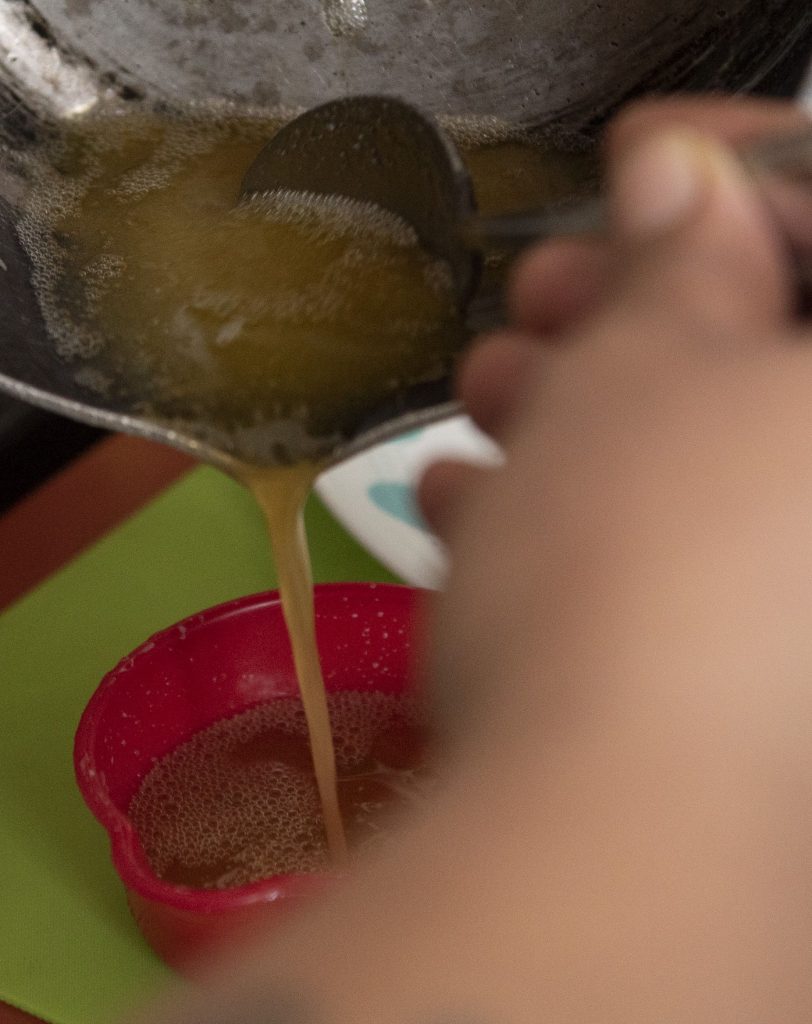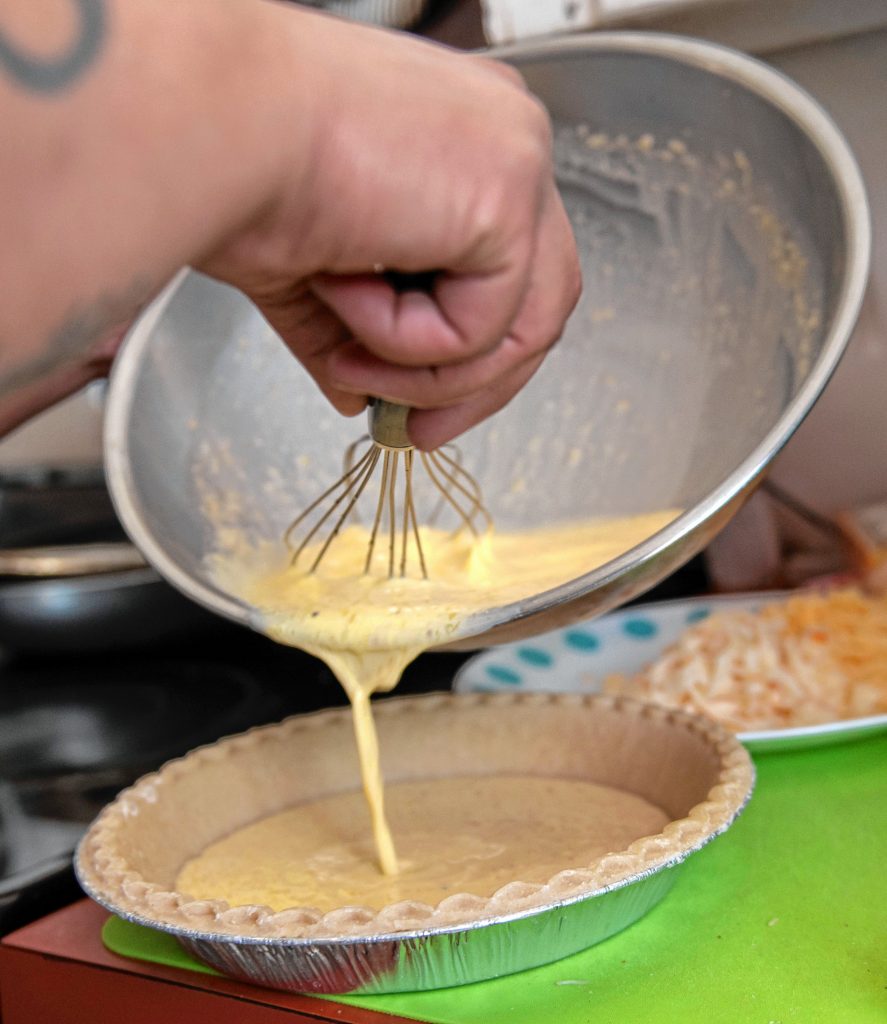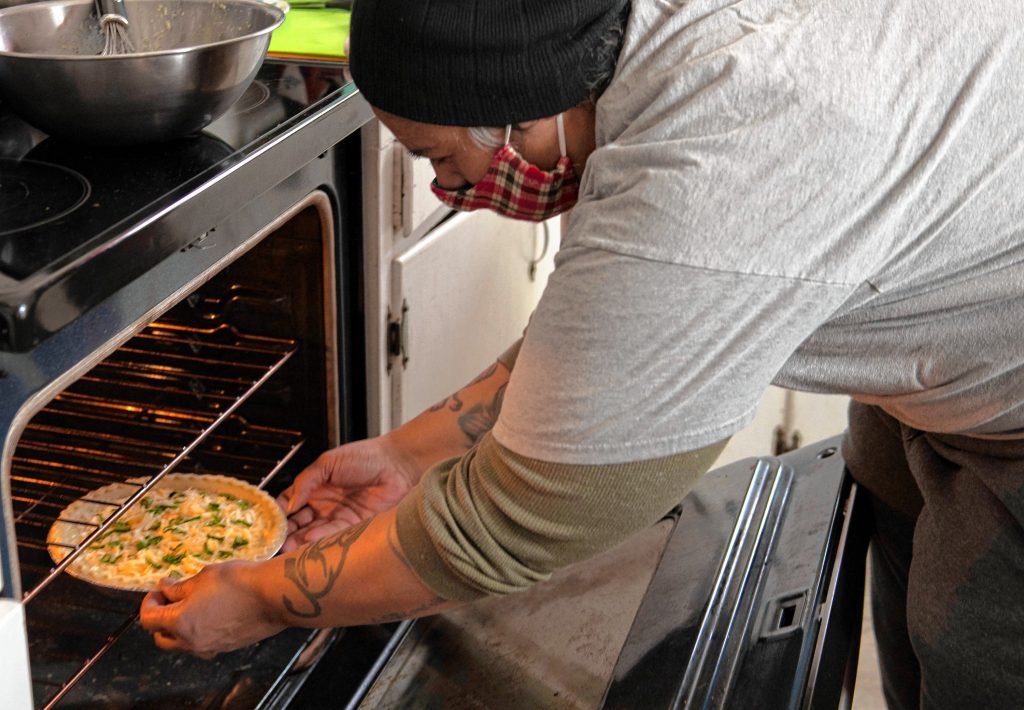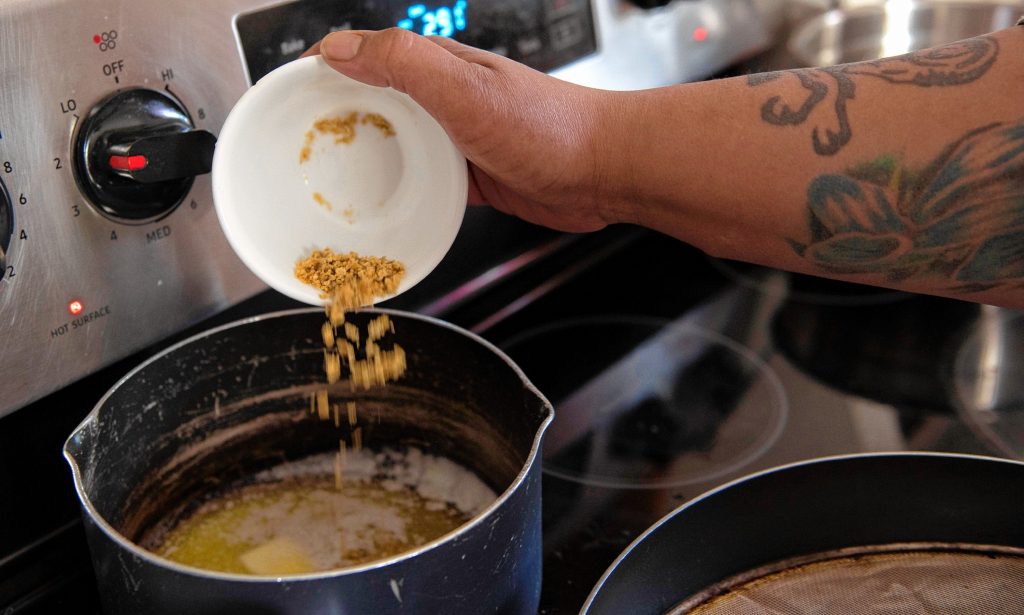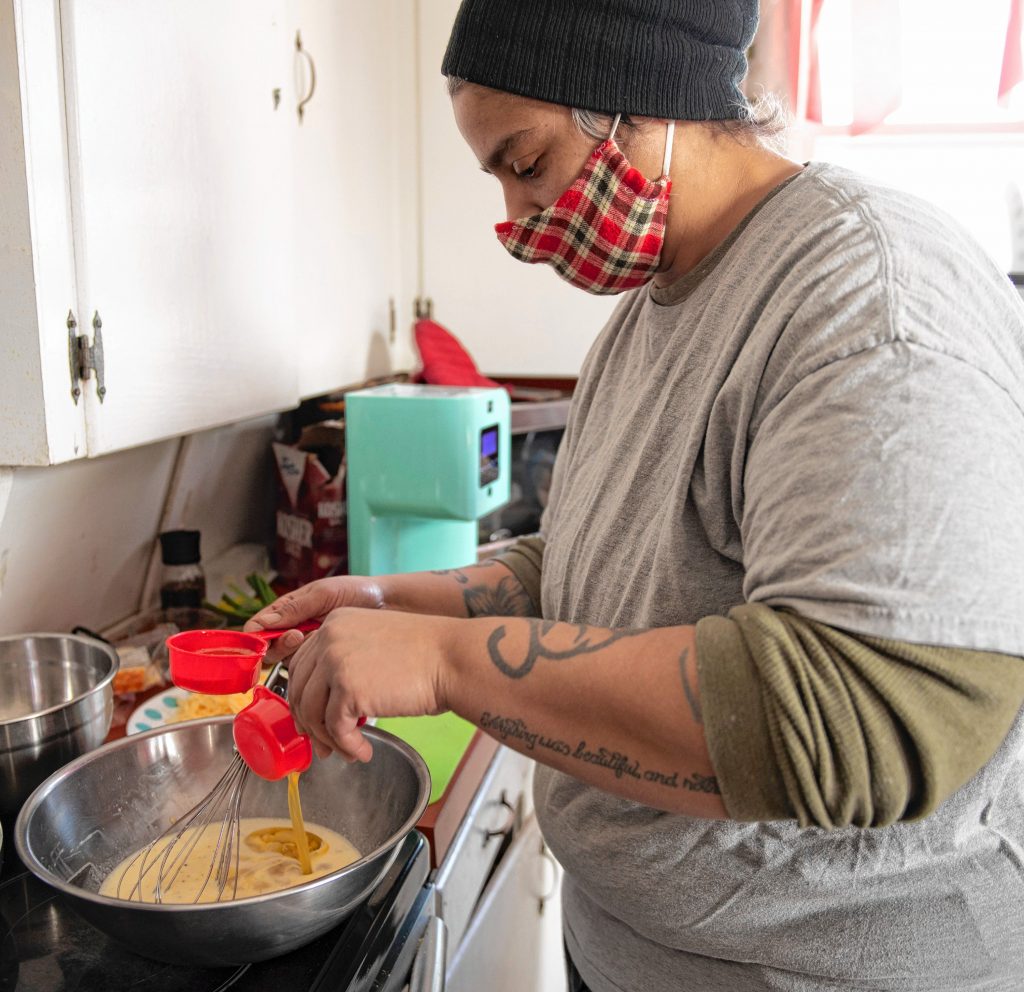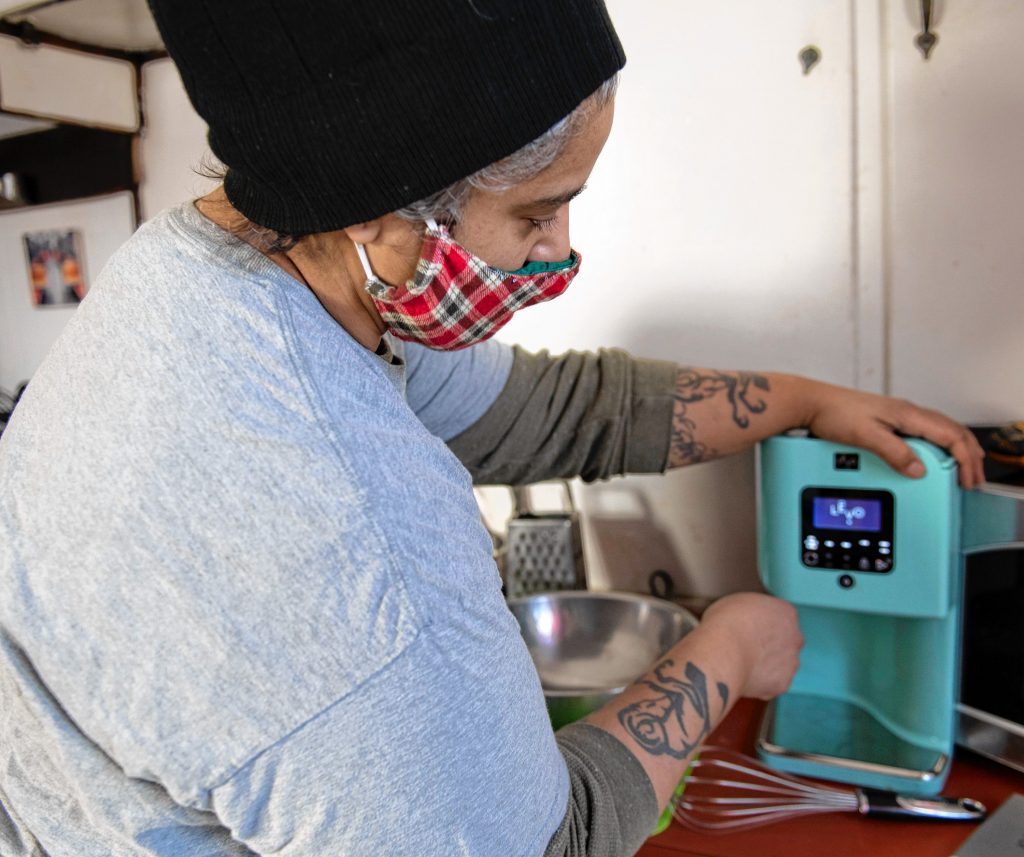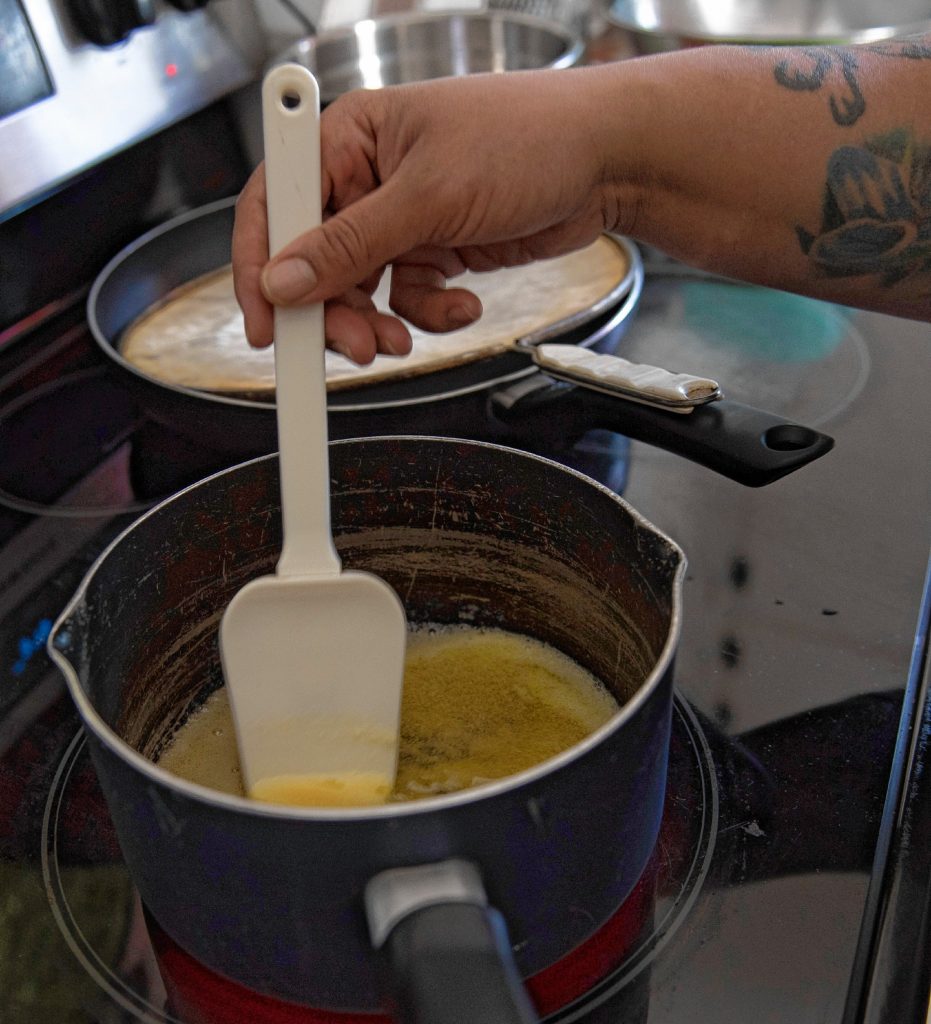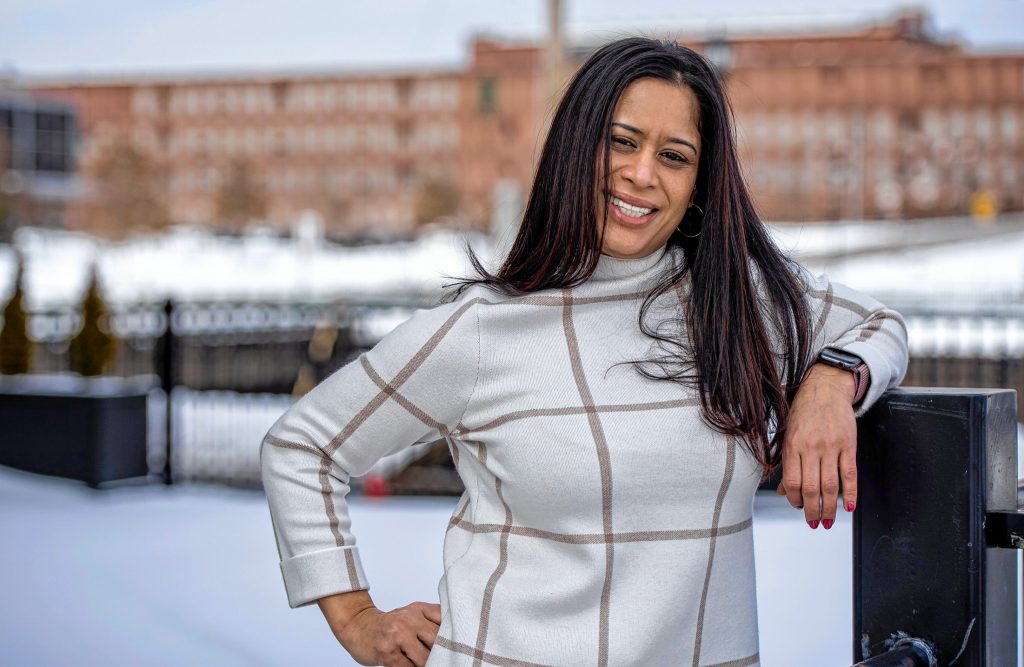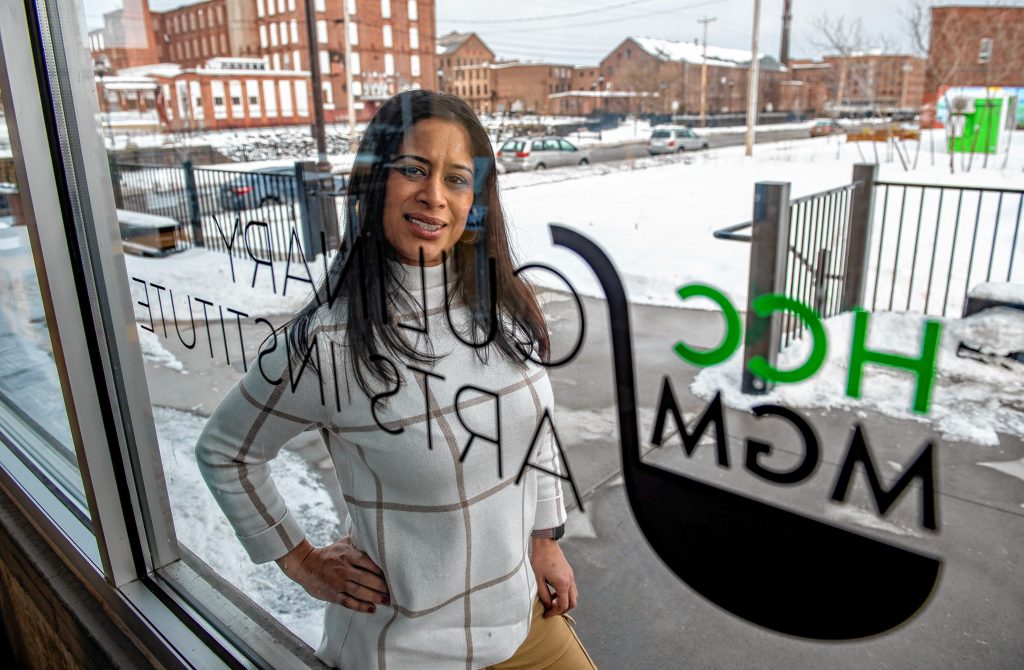Armed with an aptly-named recipe book, “Pot Culture,” Chrissy Rivera, one of thousands of budding experts in the fast-growing marijuana industry, can often be found in her kitchen experimenting with different dishes.
One afternoon last month, for example, the Springfield resident was whipping up a quiche with a butter mixture she made using THC, the main ingredient found in the cannabis plant. She also makes marijuana-based massage oil, as well as a tincture with marijuana that can be taken orally and used in cooking.
We’ve come a long way since the Betty Crocker days of yesteryear, though even that renowned company now offers a “Best Instant Pot Recipes” book.
Rivera’s goal is to develop her own line of marijuana foods and skin care products. And, more ambitiously, she wants to be a top-rated national cannabis chef.
“I don’t have to be No. 1 on the list, but to be any one of them would be amazing,” the 38-year-old said. In short, the marijuana industry is her future, and, as she says, “I am doing everything I can educationally in this cannabis industry to get there.”
That’s where Holyoke Community College’s new certificate program for people seeking careers in the burgeoning cannabis industry comes in. Opened in late 2019 to much fanfare, the Cannabis Education Center is believed to be the first of its kind in the state.
Located in the Kitteridge Center for Business and Workforce Development on the college’s campus in Holyoke, the center offers four certificate-based workforce programs that are all up and running after a short setback due to COVID-19. Each program — cultivation assistant, extraction technician, patient services assistant and culinary assistant — focuses on a different job within the industry and includes a combination of classroom and hands-on instruction.
Rivera, who lives in Springfield with her partner and her two dogs named Chef and Baker, became one of the first students to complete the CEC’s culinary assistant program, which she enrolled in shortly after completing a two-year culinary associate degree at the college.
“HCC was the first school to jump all over cannabis and I thought there is no way that this was not meant for me to take part in, because I had been waiting so long for a culinary school to do this,” said Rivera, whose previous work experience included a stint as a quality control technician for a medical device company.
Now she works as a guide at New England Treatment Access in Northampton, providing customer care to customers at the busy Conz Street dispensary.
Meeting demand
One billion. That’s how much money cannabis retailers in Massachusetts sold during the first 10 months of 2020. To say the industry is an economic engine for the Bay State is an understatement. And with those sales comes jobs — lots of them — in a variety of specialties being offered by more than 80 dispensaries currently open and countless more on the way. The cannabis technology company Weedmaps predicted in 2018 that the recreational marijuana industry in Massachusetts will eventually create the equivalent of nearly 20,000 full-time jobs.
HCC’s Cannabis Education Center, operated in partnership with nonprofit Elevate Northeast, is designed, in part, to provide skilled workforce training to prepare students for careers in four main industries:
Culinary assistants, who are responsible for a variety of cooking, baking and infusing cannabis- or hemp-based products with extracts;
Cultivation assistants, who help cultivate cannabis in all areas of the grow operation;
Extraction technician, who have the skills to support safely extracting useful molecular components from cannabis and hemp;
Patient services assistant, who works at a cannabis dispensary and interacts with patients and customers, answers questions and provides information.
Each career track is a three-week program that takes place on the weekends, and provides students with academic instruction and guest speakers who are leaders in the cannabis industry, including professional chefs, cultivators, people who run laboratory testing facilities, and cannabis business owners.
Before registering for one of the four specialties, students first complete a 14-hour “Cannabis Core.” This core class provides basic information on the science of the plant, as well as the social and historical background that has driven public opinion and affected scientific research.
“We were just wrapping up the pilot culinary class when COVID was hitting, so we paused and revamped the program,” said Michele Cabral, HCC’s director of corporate and professional development. “We relaunched in October 2020 using remote learning, and since then we have had 37 people come through the Cannabis Core.”
HCC professor Sage Franetovich, who has taught biology and botany for 14 years, currently teaches the CEC’s cultivation course.
“People often think that science happens apart from society, but this is where we can clearly see how society and politics can influence what happens in science,” Franetovich said.
She said that it has been refreshing to be able to teach the cultivation course, and also noted that she is teaching a three-credit class called “Cannabis Today” through HCC’s Sustainability Studies program.
“Teaching about cannabis for the first time is very strange,” she said. “It’s a topic that has never been taught at our college, or hardly anywhere, so it is really interesting to shift from avoiding cannabis, to focusing on it.”
Because marijuana is still illegal under federal law, the programs through HCC do not use actual cannabis. Instead, students are trained using hemp as an alternative.
“I think it is a bold and important move by the college to offer this program, and I think that the changing social and political climate makes it a good time to educate people on cannabis and get them prepared for these new jobs,” Franetovich said.
Cabral said the certificate programs through the CEC are a direct response to the industry demand for professionally-trained employees in the western Massachusetts area.
According to the Cannabis Control Commission, as of Jan. 6, 2021, there were 206 approved cannabis licenses in western Massachusetts alone, including 67 in Berkshire County, 33 in Franklin County, 49 in Hampshire County and 57 in Hampden County. The state total is currently 728.
Cabral noted that a new independent cannabis testing laboratory called Analytics Lab LLC will open shortly in Holyoke.
Despite a two-month period during which cannabis retailers were closed due to COVID 19, Cabral says that cannabis businesses are back up and running and looking for qualified, trained employees.
“In Massachusetts, sales have gone through the roof,” Cabral said. “Local employers are looking for people that are willing to work and invest in themselves, and coming through these career tracks is one way to prove that.”
The Cannabis Control Commission reports that during the first year of adult use sales, the state’s then 33 marijuana retailers generated $444.9 million in gross sales from November 2018 to November 2019.
Since the creation of the Cannabis Education Center, a total of 46 people have pursued a certificate in one of the four specialty tracks.
“We are thrilled to see the response to these programs,” said Beth Waterfall, executive director for Elevate Northeast. “We have just launched a scholarship program and are accepting donations from businesses and individuals who want to contribute to educating the workforce in cannabis, in a responsible compliant way.”
Skills put to work
According to Cabral, like Springfield’s Chrissy Rivera, most of the students enrolled in the certificate programs have had previous careers, are older than traditional students, and are looking to transition into something new.
“This is a new industry that doesn’t necessarily have experience coming to the table, so its people with transferable skills that are really in demand,” she said.
Michele Hanson is one of those in the hunt for a second career. After 30 years working as a corporate IT director in financial services for a global company, the Pembroke resident earned certification in both culinary and extraction from HCC.
“I sat down and thought about what I wanted to do until I retire, and the thing that kept coming up in Massachusetts in terms of an opportunity for an entrepreneur, was cannabis,” she said. “So, I just took it from there.”
Hanson is now opening a cannabis manufacturing business in Wareham, called YouCanBeCo LLC. The company will be doing extraction and making topicals and edibles.
“We will provide raw material to manufacturers in terms of extracted product, and we will provide finished products to retailers,” she said.
Hanson said that she is excited to create a woman-owned company and says “a lot of my diversity plan is focused on having a good percentage of women working in my space.”
She said that she thought the HCC program was well designed, provided her with good basic culinary skills, and allowed her to train with what she said are some the best chefs she has ever worked with.
“It was a great program because it was very well thought out,” she said, adding that she appreciated the broad range of people from which students could learn. “At one point, we spoke with a gentleman from Washington state in virtual class who was the head chef for Willie Nelson’s chocolate company.”
For Damaris Aponte of Holyoke, getting her culinary cannabis certificate was a gateway to a series of welcomed opportunities. She had spent 20 years in the medical field as a medical assistant. Now, having raised her family and being in her 40s, she said it was her time to shine.
“I loved the program, and I learned a lot about baking and cannabis. But I decided that I am still not really a good cook,” she laughed.
Still, Aponte used what she had learned in the program as a springboard for her growing interest in starting a cannabis delivery business.
“From going to the culinary class, I learned a lot. I got the right education and met the right people and it helped me go forward to apply for the Social Equity Program that led me to now getting licensed myself.”
The Social Equity Program is a free, statewide, technical assistance and training program for individuals living in cities and towns like Holyoke, that have been disproportionately impacted by the War on Drugs, marijuana prohibition, and other inequities.
Under the new adult use cannabis regulations, equity advocates, those who have been through the Social Equity Program, will be the only individuals eligible to apply for adult use marijuana delivery licenses for the first three years that the license is offered.
With excellent mentors, connections from coast to coast, and her business team in place, Aponte says she is prepared to open her delivery business as soon as the licenses become available this summer.
“I will be working with many product manufacturers and cultivators, buying from many businesses in Holyoke and the surrounding cities,” she said.
Aponte also says that she is putting together a cannabis committee of other woman-owned cannabis businesses to develop ways to support and create a variety of community improvement programs.
“I love my city, and don’t need to be a millionaire, I just want to be comfortable, and make enough money to give back to the community,” she said. “I am very excited to get started, and lucky to be where I am — and it all started at HCC.”
Adult use recreational cannabis is now allowed in 15 states and Waterfall says the industry has a very bright future, with federal legalization likely on the horizon.
“Empowering people with information on cannabis that will help them get in on the ground floor of a new industry is super exciting,” she said. “For people that do want to get into this industry, it’s time, time to come check out the programs and learn with us.”

